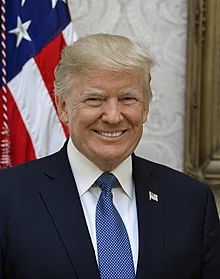Some time in 1997, I undertook a reading experiment I have never regretted, which was to begin to read, sequentially, biographies of U.S. presidents. I am not sure exactly when I picked up Cincinnatus: George Washington and the Enlightenment by Garry Wills, but it must have been early in the year.
I know this because, while I don’t consider myself a nerd, I confess to some nerdy habits. One of them is that I have a half-century of annual lists of books and reports I have read, and this one is number 17 out of a total of 101 that I read that year. I don’t even remember what it was about 1997 that allowed me to read so many, but I do know it was before the publication of Planning for Post-Disaster Recovery and Reconstruction, of which I was the lead author, by the American Planning Association put me on the map as a leading voice on disaster issues in the field of urban planning. Those who have read this blog often know that this PAS Report set me on a trajectory that ultimately defined my career. It also has meant that my reading lists tended to shrink as my professional obligations expanded, even though those lists include many professional publications.
But I am getting off my point, except by way of explaining how I know what I know. That 1997 list eventually included books about all of the first five presidents, Washington through Monroe. The pace slowed in some subsequent years, especially when I tackled 900-page monsters like Truman by David McCullough. The list came to include multiple biographies of several more consequential presidents, most notably, Abraham Lincoln, Ulysses S. Grant, Woodrow Wilson, and Lyndon Johnson. Gaps were sometimes filled by my occasional role as a biography judge for the Society of Midland Authors annual book awards competition, which predictably included some presidential biographies. I finally caught up with the contemporary presidency in 2012, when I completed a biography of George H.W. Bush by Timothy Naftali. (I had already read about George W. Bush and Barack Obama by then.)
Then came Donald Trump. Compelled to try to understand this unconventional candidate, I first read The Making of Donald Trump by David Cay Johnston during the summer of 2016, before he was even elected. At this point, seeking insights into his uniquely narcissistic and authoritarian tendencies, I have read five biographies of Trump and, frankly, grown weary. It may be a long while, if ever, before I read another.
It taxes the soul.
Before I proceed with the problem of Trump, let me note, as I have before, that while I have been registered as a Democrat in multiple states (OH, IA, IL) since my college days, and have participated in campaigns and the Iowa caucuses, and even ran for office (City Council in Iowa City in 1983), I have more than once voted for a Republican or third-party candidate when I thought a Democratic candidate was corrupt or otherwise unfit for public office. In 2006, when Illinois Gov. Rod Blagojevich was running for a second term, I had already seen enough of his antics and voted for the Green Party candidate. I should have voted for Republican Judy Baar Topinka, an honorable public servant who would have done a fine job, any minor disagreements notwithstanding. Just four years later, after a major public scandal, Blagojevich was in federal court defending himself and ultimately being convicted by a jury and sent to federal prison for fourteen years.
In 2020, his sentence was commuted by then-President Donald Trump. My reaction: “birds of a feather” . . . .
I was also pleased when Democrats in the Illinois House of Representatives finally, belatedly, removed Michael Madigan as Speaker and leader of their party. At age 82, he is now in federal court facing serious corruption charges. When you love power more than country, state, or community, these things happen.
That brings me back to Donald J. Trump and what I have learned from this lifetime of experience and a continuing experiment in reading presidential biographies. (Over the summer, I completed Grant, a 957-page tome by Ron Chernow.)
Trump is unique in his corruption, his greed for power and money, his disrespect for institutional boundaries, and his inability to grasp the larger moral and national objectives that have made great presidents stand out in spite of the inevitable flaws of any human being in such an awesome position.
He is the only president who could not and cannot accept losing. Even when he won the presidency through the Electoral College in 2016, he could not accept having lost the popular vote and insisted that millions of illegal votes had been cast for his opponent.
In 2020-2021, he took this much farther than any other president or presidential candidate could ever have imagined by not only filing dozens of fallacious lawsuits whose lack of proof produced consistent failures before judges of all parties, not only initiated a fake electors scheme, but stirred up a violent mob that attacked the U.S. Capitol on January 6, 2021, resulting in several deaths and the injuries of more than 140 Capitol and District of Columbia police officers. He has never taken responsibility for this attempted coup and faces charges in Washington, D.C., brought by Special Counsel Jack Smith.
It remains to be seen what he will do if he is defeated in this election, but do not expect him to go quietly into the night. His followers, about 1,000 of whom have been arrested for or convicted of various charges in connection with the January 6 insurrection, may be more gun-shy about further extending their legal vulnerabilities on his behalf, but don’t be surprised if he tries to mobilize them again.
He is the only president who became an adjudicated rapist. He lost the civil defamation case brought by E. Jean Carroll, but is also a convicted felon in the porn star payoffs case brought against him in a New York state court by Manhattan District Attorney Alvin Bragg. His case awaits sentencing this month.
He is the only president who ever promised to be a “dictator on Day One.” You should know that he not only means what he says, but means more than that. He will not become a committed democrat on Day Two.
The only explanation I can find for his ability to remain in contention after all this is that too many Americans either have never learned basic civics, identify with his empty machismo, or fail to grasp the magnitude of their own gullibility. Yes, one can worry about issues like the economy, abortion rights, immigration, and the like, but there are serious reasons why lifelong Republicans like Liz Cheney, Dick Cheney, Adam Kinzinger, John Kasich, and hundreds of others are supporting Kamala Harris. It is not because they agree with her on every position she has taken. They do not. It is because they see her as the candidate who will honor the system and abide by the results. They see her as the patriot putting country before self that Donald Trump can never claim to be.
Our first priority must be preserving American democracy. Without it, we are all swimming upstream, which eventually ends in moral, physical, and political exhaustion and the collapse of the system as we have known it. “Burning down the house” is not an intelligent or morally acceptable option. Millions of immigrants who have found safe harbor in America and believe in this nation’s promise already know what it is like to live in a nation where subversive or authoritarian forces succeeded in burning down the house.
Still skeptical of what I am saying? Seek out a refugee from Haiti, or Venezuela, or El Salvador, or Russia, and ask them what life was like, and why they came here. Be humble enough to listen without judgment. Then welcome them as fellow Americans committed to a sane future in a system that will always need some reform but has provided a historically remarkable level of stability for a quarter of a millennium, even after surviving severe tests like the Civil War.
This nation still has a future. On Election Day, let’s not waste it or fritter it away. Think seriously about the candidates you support and why you support them. It is not just Donald Trump and Kamala Harris who are on the ballot, along with numerous candidates for lower offices. It is our common sense and collective good judgment that is also being tested.
Jim Schwab


